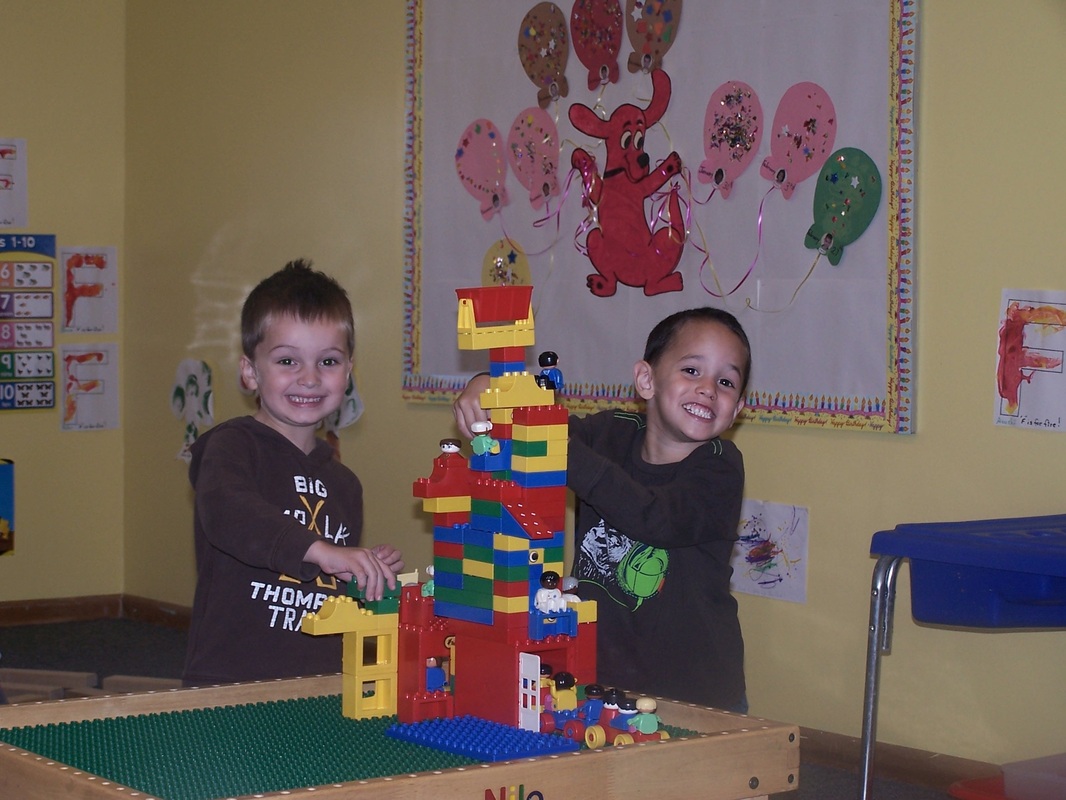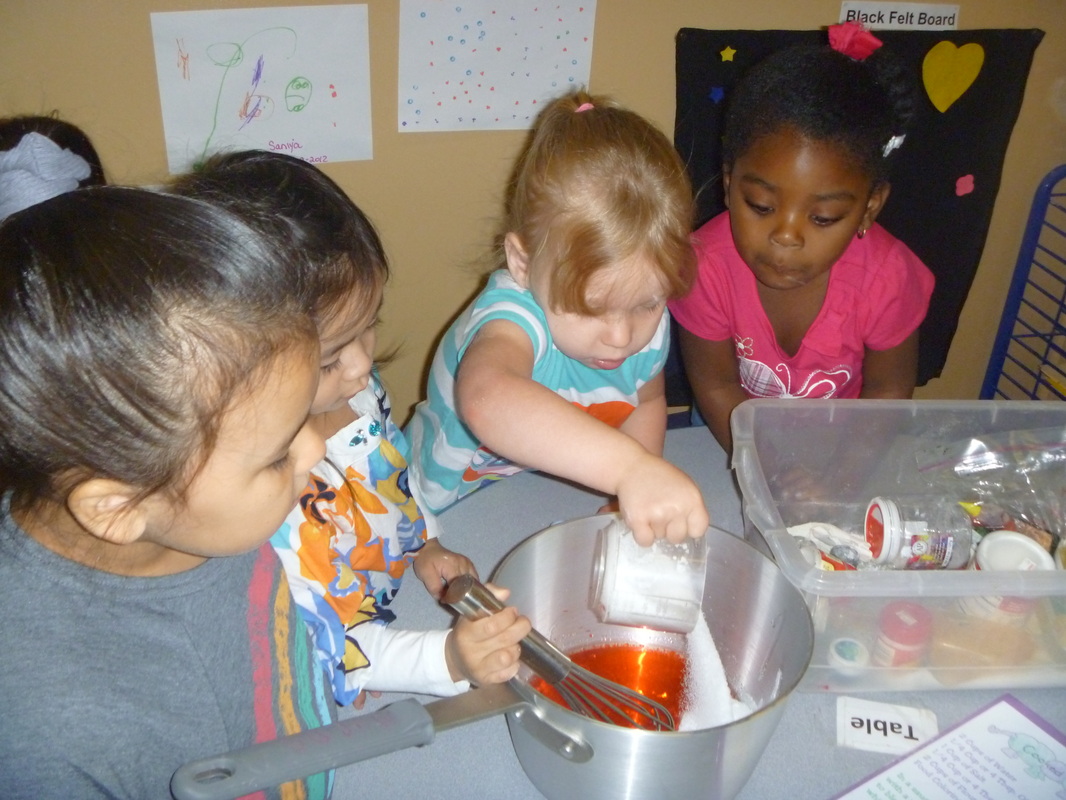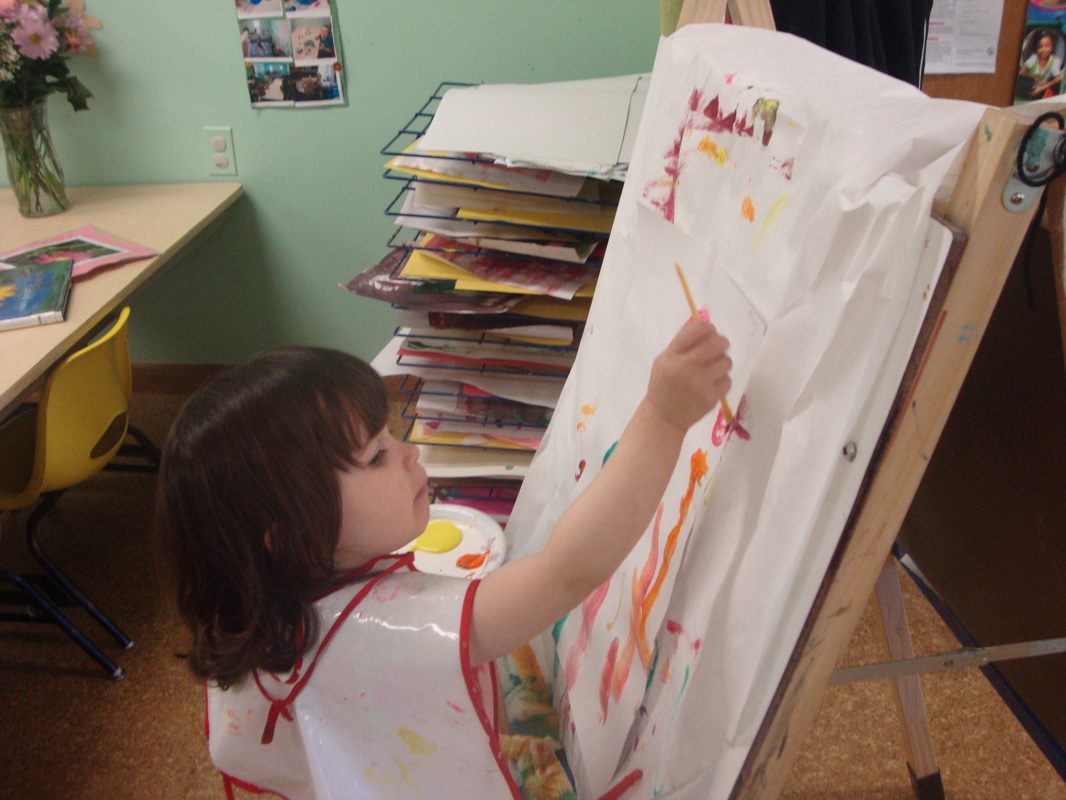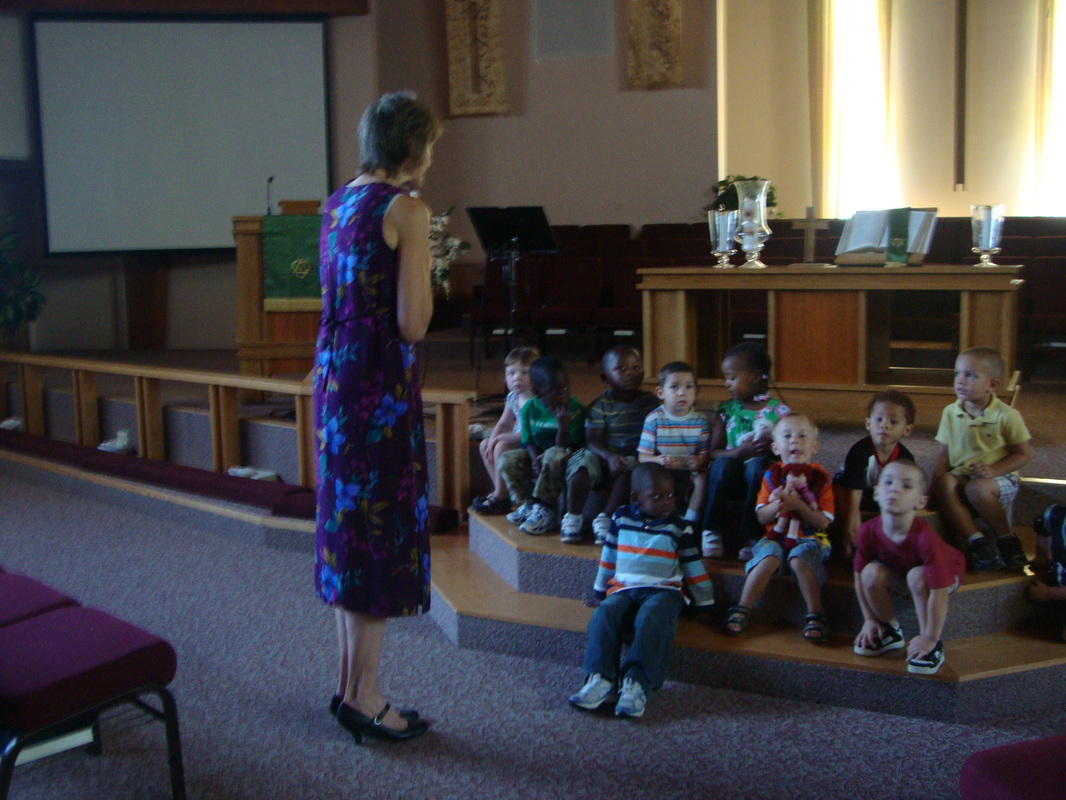Our Curriculum is drawn from the Massachusetts DOE Guidelines for Preschool Learning Experiences. It is based on five areas of development; Intellectual, physical, social, emotional, and spiritual. We follow the NAEYC standards for developmentally appropriate practices. We offer a hands-on approach designed to educate and enhance the total develpment of each child, allowing them to develop at their own pace.
Teachers create lesson plans each week designed to improve skills in oral/written language, math, science/technology, history/socail sciences/, social/emotional health, fine and gross motor, and the arts. Teachers use on-going assesments and observations through the year to ensure that children's interests and learning styles are incorporated into the curriculum also.
Christian Curriculum:
Through Bible stories and activities we explain the following concepts on a child's level.
-God created the world around us.
-God loves and cares for all of us.
-Jesus is God's gift to all of us.
-Jesus can help us obey, share, and do hard things.
-The Bible helps us to know what to do and Praying is talking to God.
By teaching about the life of Jesus and through other stories from the Bible, children learn valuable social and emotional skills, with character traits, such as kindness, empathy, teamwork, honesty, loyalty, courage, fairness, and personal responsibility.
In addition, once a month, the classes join Pastor John in the sanctuary for a special interactive Bible
lesson.
What children are learning in Preschool.
http://www.parents.com/toddlers-preschoolers/starting-preschool/curriculum/what-your-child-should-learn-in-preschool/
It may seem like a lot of fun and games, but your child is actually learning important lessons as he plays.
Story corner: Just by listening and watching her teacher read Go, Dog,
Go! your child is becoming familiar with basic literacy concepts, like reading
left to right, and what words and letters are. Sometimes, if you walk by the
book corner, you'll see preschoolers "reading" by turning the pages and
narrating what they see -- a great precursor to real reading.
Puzzle table: Legos, and puzzles, and beads -- oh, my! Children
improve their fine motor skills, concentration, and hand-eye coordination when
they play these games. Working independently also gives them practice problem
solving.
Sand/water table: The tools and toys help teach science concepts like cause and
effect. Since there's no right or wrong with these materials, kids feel a sense
of success when they play with them.
Science projects: Science lessons offer a great way for children to
observe living things. and learn what they need to grow. Other science tools like
scales and magnifying glasses allow kids to examine, experiment, predict,
question, and problem-solve.
Circle time: Learning to sit patiently, saying good morning, and
talking about the day's events is a key part of your child's day. This preschool
town meeting gives her important practice for the skills she'll need to master
for kindergarten.
Art area: Crayons, markers, safety scissors, glue, and paintbrushes
are all great tools for mastering fine motor skills and hand-eye coordination.
And children love to talk about their artwork -- it gives them practice with
language and self-expression.
Block area: What isn't your child learning? She's gaining basic math
skills when she counts them, identifies their shapes, and compares their sizes.
Building houses, roads, and forts helps her hone spatial skills that will be
helpful for geometry and physics later on.
Outdoor play: It looks like chaos, but all that activity helps kids
learn what their bodies can do. Children need to move and experiment to master
balance, improve coordination, and develop their muscles. Group activities on
the playground also teach kids cooperation.
Sources: Debbie LeeKeenan, director, Eliot-Pearson Children's School at
Tufts University, in Medford, Massachusetts; Amy Flynn, director, Bank Street
Family Center at Bank Street College of Education, in New York
City.







